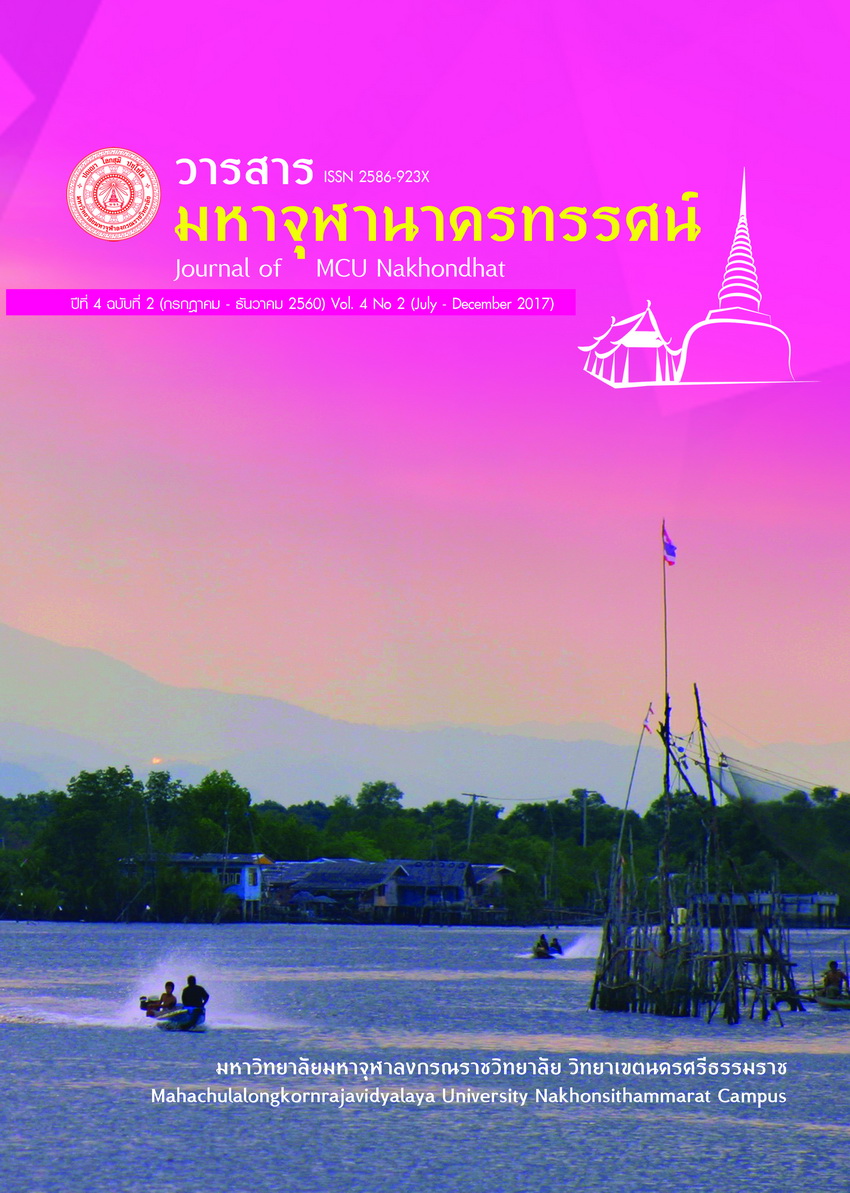THE FOLK WISDOM OF LOCAL-FISH PROCESSING FOR LIVELIHOOD FOLLOW IN BOG FOREST WAY. CASE STUDY : FISH MARKET PRODUCT GROUP, BAN TUN, CHA-UAT, NAKHON SI THAMMARAT
Main Article Content
Abstract
The objective of this research were as follow : 1. to study the folk wisdom of Local-fish food processing and 2. to study livelihood follow in bog forest way, Case study : Fish market product group, BanTun, Cha-uat, Nakhon Si Thammarat. This research was qualitative research.
The results of this study were ;
- the folk wisdom of Local fish food processing for livelihood follow in bog forest way as follow ; 1. the methods of Local-fish processing that should chosen the freshwater fish as Cat-fishes and snake-head fish which must had chosen about 1 kilogram a one that would sell 200 baht a kilo and if some fish had 5 – 7 grams a one would sell 100 baht a one, 2. except the marketing ; Fish market group set up the provident fund from saving to help together in community, 3. rule of group was “No fishing during spawning season”
- the livelihood follow in bog forest way as follow ; 1. habitation and community must proper to set up fish market product group that consumer must comforted to buy the goods , 2. economy base and natural resource as they had much more profit especially in festival seasons. 3. Physical Environment and natural resource had abundance that they would be human food source. However long-term trend of folkways of Fish market product group might be changed to fish farming replace that would be object for processing group.
Article Details
How to Cite
พลแก้ว เ., เดโชชัย อ., ดำรงวัฒนะ จ., & แขน้ำแก้ว เ. (2017). THE FOLK WISDOM OF LOCAL-FISH PROCESSING FOR LIVELIHOOD FOLLOW IN BOG FOREST WAY. CASE STUDY : FISH MARKET PRODUCT GROUP, BAN TUN, CHA-UAT, NAKHON SI THAMMARAT. Journal of MCU Nakhondhat, 4(2), 94–103. retrieved from https://so03.tci-thaijo.org/index.php/JMND/article/view/152996
Section
Research Articles
References
กระทรวงศึกษาธิการ. (2539). ความหมายของภูมิปัญญาท้องถิ่น. เรียกใช้เมื่อ 2559 มีนาคม 20 จาก http://www.ipesp.ac.th


